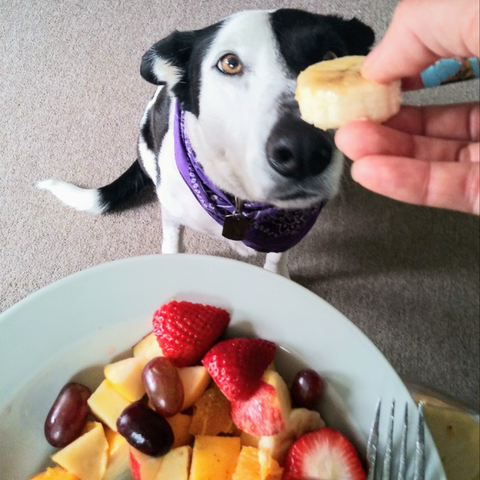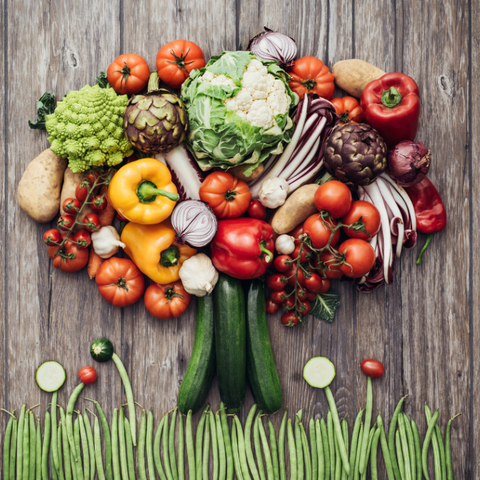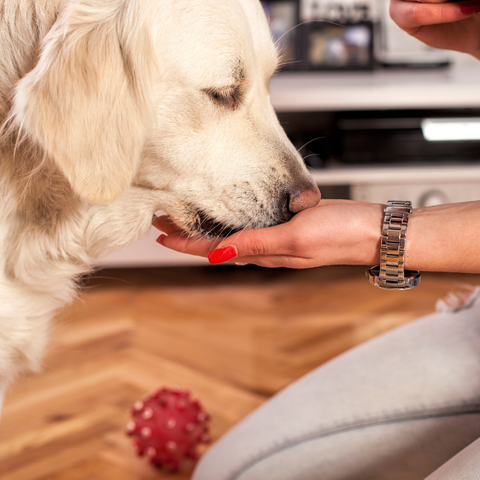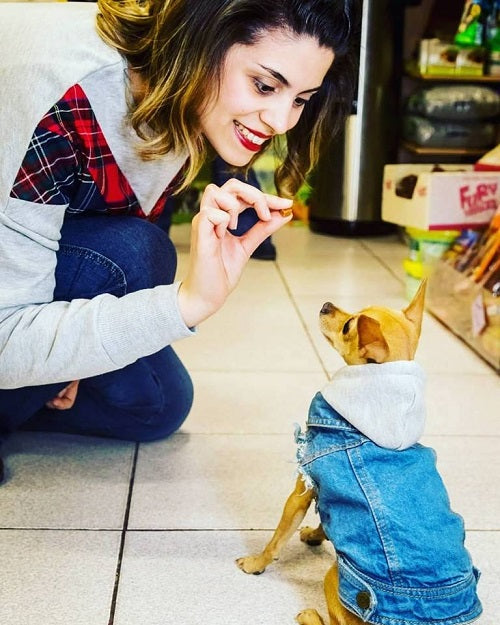
Dog Nutrition: Which Human Foods Will He Eat & Which Won't
Share
Who can resist the two sweet eyes of a dog looking at him in a pleading manner while he eats his meal? How many of us have not felt that our dog is literally looking us in the mouth while we eat and we have given him everything we have found on our plate?
The problem is that not all foods work for our dog. Some can even cause him very serious health problems, from intolerance and gastrointestinal disorders to allergies and burden on the liver or kidneys.
So, before you give some of your food to your pooch, read below the list of the main human foods that your pet should and should not eat.
Almonds
NO. Dogs should not eat almonds because they may choke. If the dog does not chew the fruit well, it can get stuck in its esophagus. Additionally, salted almonds are especially dangerous because they cause fluid retention, which is potentially fatal for dogs prone to heart disease.
Bread
YES . Small amounts of plain bread (without spices and raisins) will not harm your dog, but neither will they have any health benefits. Bread has no nutritional value for the dog and can lead to increased calorie intake and obesity.
Cashews
YES . A small amount of unsalted cashews is beneficial for dogs because they contain calcium, magnesium, antioxidants and protein. However, too much can lead to weight gain and other ailments related to fat intake.
Cheese
YES . Dogs can eat cheese in small to moderate amounts as long as they are not lactose intolerant. Many types of cheese can be high in fat, so opt for lower-fat varieties such as cottage cheese or mozzarella.

Chocolate
NO . Dogs should never eat chocolate as it contains substances that stop a dog's metabolic process. Even a little chocolate, especially dark chocolate, can cause diarrhea and vomiting in the animal, while a large amount can cause seizures, unstable heart function, and even death.
Cinnamon
NO. Although cinnamon is not toxic to dogs, it is best to avoid it. Cinnamon and its oils can irritate the inside of dogs' mouths, making them uncomfortable. In addition, if the dog inhales the powdered cinnamon, it can cause difficulty breathing, coughing and choking.
Coconut
YES . Coconut contains antibacterial substances that help fight bacteria and viruses. Also, coconut milk and oil are safe for dogs and contribute to good bowel function.
Corn
YES . Corn is one of the most common ingredients in many dog foods. However, in some dogs it can cause indigestion, so you need to be careful with the amount.
Eggs
YES . Eggs are safe for dogs as long as they are not raw. Cooked eggs are a very good source of protein and are particularly easy to digest for our four-legged friends.

Fish
YES. Fish contains good fats and amino acids, contributing to the dog's health. Salmon and sardines are particularly beneficial - salmon because it's high in vitamins and protein, and sardines because they have soft, easily digestible bones for extra calcium.
Garlic
NO . Like onions and leeks, garlic is toxic to dogs as it can cause anemia. Anemia in turn causes weakness, dizziness and increased heart rate.
Ham
YES. Although ham is suitable food for dogs, it is certainly not the healthiest choice. Ham is high in sodium and fat, so it should not be a habit for the dog to eat.
Honey
YES. Honey has many nutrients, including vitamins A, B, C, D, E and K, potassium, calcium, magnesium and antioxidants. Feeding dogs small amounts of honey can help with allergies because it introduces small amounts of pollen into their bodies, boosting immunity to allergens.
Ice cream
NO. Ice cream contains a lot of sugar, and many dogs are lactose intolerant. To avoid milk altogether, freeze chunks of strawberries, apples and pineapple to give your pooch a healthy frozen treat on hot summer days.
Milk
YES . Although milk is a food that can be consumed by dogs, care should be taken in case they are lactose intolerant.
Peanut butter
YES . Peanut butter is an excellent source of protein for dogs, as it contains beneficial fatty acids, vitamin B and E and niacin. Raw, unsalted peanut butter is the healthiest choice. Read the label carefully to make sure the peanut butter does not contain xylitol, a sugar substitute that can be toxic to dogs.
Peanuts
YES. Unlike almonds, peanuts are safe for dogs because they contain beneficial fatty acids and protein. As long as they are not salted, of course.

Pop corn
YES. Popcorn contains riboflavin and thiamin, which promote eye health and digestion, as well as small amounts of iron and protein. However, the popcorn must be unsalted and well-cooked, so that the seeds have completely opened. Uncooked pieces of popcorn can cause the animal to choke.
Pork
YES. Pork is a highly digestible protein, full of amino acids, and contains more calories per kilogram than other meats. Pork is also less likely to cause an allergic reaction in the dog than other sources of protein.
Quinoa
YES. Quinoa is now increasingly found in quality dog foods, as it is a healthy alternative to corn, wheat and soy, common starch ingredients used in dry dog food.
Shrimps
YES. A few shrimp here and there is fine for your dog, but only if they are fully cooked and the shell (including the tail, head, and legs) has been completely removed. Shrimp are high in antioxidants, vitamin B12 and phosphorus, but also low in fat, calories and carbohydrates.
Tuna
YES. Dogs can eat tuna, but only in small amounts. Well-cooked, fresh tuna is an excellent source of omega-3 fatty acids, which promote heart and eye health. As for canned tuna, it contains small amounts of mercury and sodium, which should be avoided in excess.
Turkey
YES. Turkey is a suitable food for dogs as long as all the bones have been removed. Poultry bones can shatter during digestion, causing blockages or even tears in the intestine.
Salmon
YES. Properly cooked salmon is an excellent source of protein, good fats and amino acids. It promotes joint and brain health and contributes to the immune system of dogs. However, raw or undercooked salmon contains parasites that can cause vomiting, diarrhea, dehydration and, in extreme cases, even death.
Cereals
YES. Although dogs don't need grains as protein, they can still eat them. Grains, such as wheat and corn, are good sources of fatty acids and fiber. But some dogs are allergic to them.




